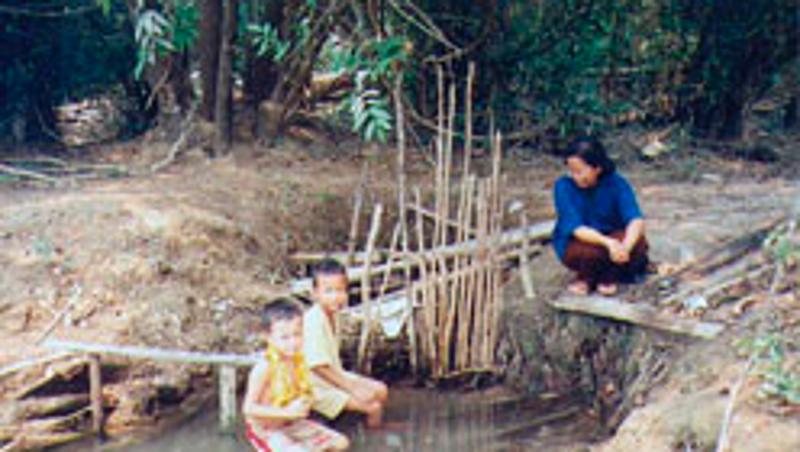
A project to educate low-income people in rural Indonesia on the importance of using clean, safe water to alleviate the child death toll from water-borne diseases is being conducted by Queensland University of Technology PhD alumna Dr Djenta Saha.
The project is funded by a $15,000 QUT engagement incentive grant and will be overseen by Dr Jan McDowell who has managed research projects in QUT's Schools of Nursing and Public Health for 13 years.
Dr Saha initiated the project because, as noted by the Asian Development Bank, many water supply facilities had been installed in rural communities by government and philanthropic groups but had not resulted in a reduction in water-related disease.
"These efforts to provide clean, safe water have largely been unsuccessful as poor villagers do not have the skills to manage, operate and maintain the facilities," Dr Saha said.
"Diarrhoea remains the second largest cause of death for young children in Indonesia, particularly between 12-24 months of age."
Dr Saha said the alarming statistic had been attributed to inadequate access to clean, safe water, combined with poor hygiene practices and behaviour.
Lack of knowledge amongst villagers about the health risks of using contaminated water was one of the key contributors to failure to correctly use the clean water facilities that had been provided.
"Basic health interventions such as "clean water" programs are not reaching the poor so there is a strong need to integrate behaviour change with these programs to increase their sustainability," Dr Saha said.
Dr Saha said that because behavioural change was needed not only by community members but also by health professionals, a "train the trainer" program was built into the project to achieve long-term success.
Phase one of the project would work with an at-risk community on the banks of the river north of Palangkaraya in Central Kalimantan to educate them on the need to use clean water and, conversely, that contaminated water was dangerous to their health. It would give them practical know-how in producing clean water by boiling or using simple technology such as clay filters while also empowering villagers to take responsibility for their community's health.
"Encouraging people to adopt healthy behaviours is often challenging," Dr Saha said.
"Empowering Indonesian villagers and health workers, such as nursing students, accelerates the rate at which behavioural change occurs in communities."
The second phase of the project would build capacity among public sector health workers in Central Kalimantan. This "train the trainer" module is designed to rapidly upskill community health professionals who are responsible for overseeing and caring for low-income villagers in rural communities.
Dr Saha completed four years of doctoral study at QUT's School of Nursing earlier this year (2006). She has been involved in educating nursing students and has undertaken community projects in Central Kalimantan for 20 years. This project was born from a need identified by Dr Saha during community outreach visits with student nurses from Palangkaraya Health Polytechnic's School of Nursing.
Dr Saha has now returned to the School of Nursing at Palangkaraya and is passionate about improving health outcomes for her people. Her work has the support of the Head of the Provincial Health Office and the governor of Central Kalimantan.


